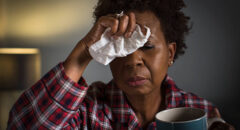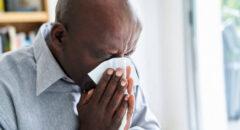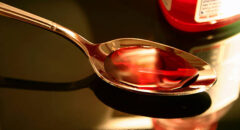
If you have a sore throat that you just can’t kick this winter, be careful. It may be than the common viruses you may often get around this time. You might have streptococcal pharyngitis, commonly known as strep throat.
“The incidence of strep is higher during the winter and spring months,” said Alysha Hart, certified family nurse practitioner and advanced practice nurse. “About 20 percent of the patients that come into my office complaining of sore throat will have strep throat.”
Here’s a quick and dirty run down on strep throat, how to spot it, and how to handle it.
MUST READ: Common Cold Or Bacterial Infection?
It’s painful.
As its name suggests, strep throat can cause a really bothersome and painful sore throat, but it is likely to also cause other symptoms.
“Strep throat typically presents as an abrupt onset of sore throat, fever, swollen neck lymph nodes, enlarged tonsils — with or without the presence of white discharge, malodorous breath, rash, and/or nausea,” Hart said.
If symptoms are closer to those of a virus, strep may not be the cause, though.
“Upper respiratory symptoms including runny nose or cough suggest a viral infection, unless you are unfortunate to have both strep throat and another respiratory virus simultaneously,” Hart said.
It’s confirmed by a swab test by a medical professional.
When it comes to strep throat, you shouldn’t try to diagnose yourself. A medical professional will confirm the presence of bacteria using a swab test.
“If you think you have strep throat, make an appointment with your PCP or visit a retail clinic to be evaluated,” Hart said. “Clinicians will diagnose based on the presentation of symptoms or testing a throat swab for presence of bacteria.”
MUST READ: 6 Natural Sore Throat Soothers
In children with strep, pain relievers, such as acetaminophen or ibuprofen, can be used to relieve the pain and fever associated with strep throat. These medications should be given according to the child’s weight.
Meanwhile, children with a sore throat/trouble swallowing or vomiting can easily become dehydrated. It is very important to use oral rehydration solution or popsicles to maintain proper hydration. Please seek additional medical attention if your child cannot keep fluid down or significantly decreases urine output.
Natural Remedies
1. Elderberry
Elderberry has antibacterial and antiviral effects. A recent study showed that elderberry can protect against respiratory symptoms during long flights. Researchers analyzed this due to the increased risk of getting upper respiratory disorders and virus and bacteria-induced respiratory infections on flights. They found that the travelers returning from overseas, who used elderberry, showed fewer respiratory symptoms than the placebo group.
You can drink elderberry tea, take capsules, or use elderberry powder. You can even buy it in liquid form.
2. Echinacea
Known as another way to prevent the common cold, researchers suggest that there are many powerful echinacea benefits, including its ability to work as an immuno-enhancing herb that can stop the spread of bacterial conditions like strep throat. There is good evidence suggesting that the phytochemicals in echinacea, and one of its compounds called echinacea, can keep bacteria and viruses from entering healthy cells.
Echinacea can also be used to relieve pain related to strep throat, such as sore throat, headaches and body aches. It has anti-inflammatory effects that will help to reduce swelling in the throat and tonsils. Take echinacea in liquid form, as a tea or in capsule form as soon as symptoms appear.
3. Vitamin D
Researchers have studied the








